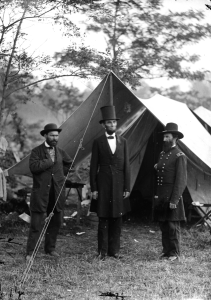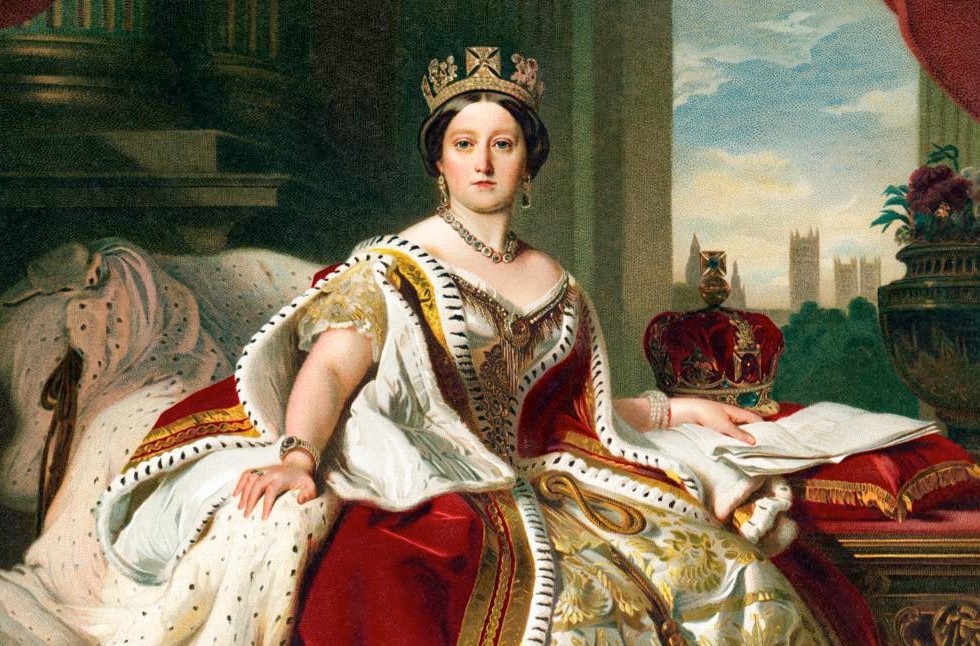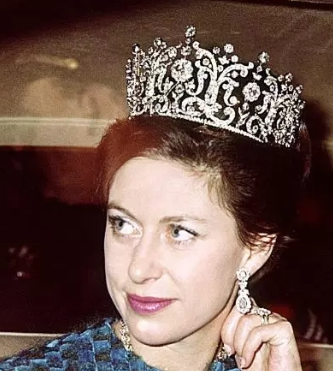
Allan Pinkerton, President Lincoln, and Major John A. McClernand in an 1862 photo by Alexander Gardner following the Battle of Antietam. Pinkerton was the head of Union Intelligence Services then. It was alleged that, in 1861, his Pinkerton Detective Agency uncovered an assassination plot against the president in Baltimore on his way to the inauguration. Thanks to Pinkerton's warning, Lincoln changed his travel itinerary and the plot was foiled. On the 3-story Chicago building of the Pinkerton Detective Agency, their logo, a black-and-white eye, says "We Never Sleep." This was the origin of the slang term for detective "private eye."
Since he stepped foot into the White House, President Lincoln was dogged by rumors of assassination and kidnapping. Threatening letters arrived on an almost daily basis. Lincoln stuffed them away in a bulging envelope marked ASSASSINATION. (1)
Abe’s friends were worried. “I long ago made up my mind that if anyone wants to kill me, he will do it,” he told a newspaper reporter. “If I wore a shirt of mail, and kept myself surrounded by a bodyguard, it would be all the same. There are a thousand ways of getting at a man if it is desired that he should be killed.”
Nevertheless, soldiers camped on the lawn of the White House, the cavalry escorted him on his afternoon carriage rides, and private detectives served as bodyguards.
In early April of 1865, just before the fall of Richmond and the end of the Civil War (and less than two weeks before his assassination), Lincoln had a troubling dream he related to friends:
“About ten days ago, I retired very late. I had been up waiting for important dispatches from the front. I could not have been long in bed when I fell into a slumber, for I was weary. I soon began to dream. There seemed to be a death-like stillness about me. Then I heard subdued sobs, as if a number of people were weeping. I thought I left my bed and wandered downstairs. There the silence was broken by the same pitiful sobbing, but the mourners were invisible. I went from room to room; no living person was in sight, but the same mournful sounds of distress met me as I passed along. I saw light in all the rooms; every object was familiar to me; but where were all the people who were grieving as if their hearts would break? I was puzzled and alarmed. What could be the meaning of all this? Determined to find the cause of a state of things so mysterious and so shocking, I kept on until I arrived at the East Room, which I entered.
There I met with a sickening surprise. Before me was a catafalque, on which rested a corpse wrapped in funeral vestments. Around it were stationed soldiers who were acting as guards; and there was a throng of people, gazing mournfully upon the corpse, whose face was covered, others weeping pitifully.a catafalque is a raised platform supporting a body or coffin
‘Who is dead in the White House?’ I demanded of one of the soldiers.
‘The President,’ was his answer; ‘he was killed by an assassin.’
Then came a loud burst of grief from the crowd, which woke me from my dream. I slept no more that night; and although it was only a dream, I have been strangely annoyed by it ever since.”
(1) Freedman, Russell. Lincoln: A Photobiography. (New York: Scholastic Inc., 1987)



















